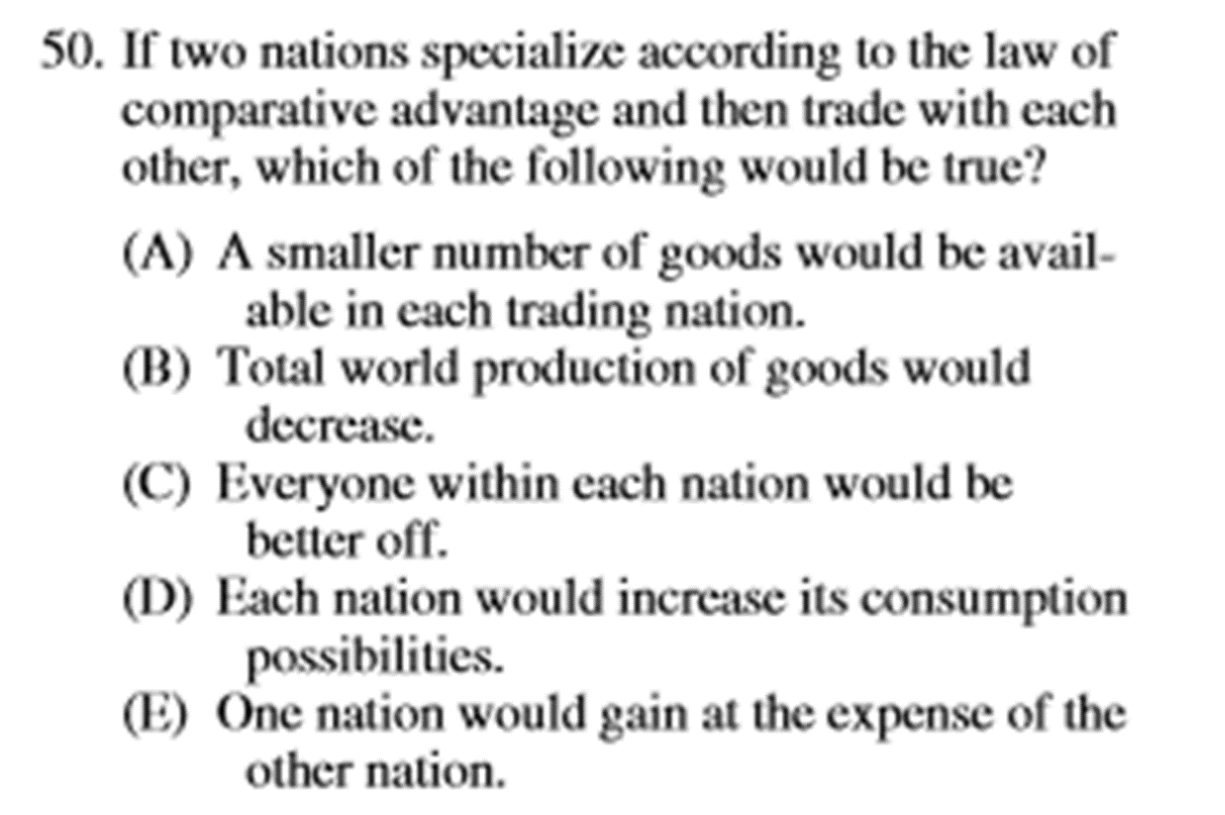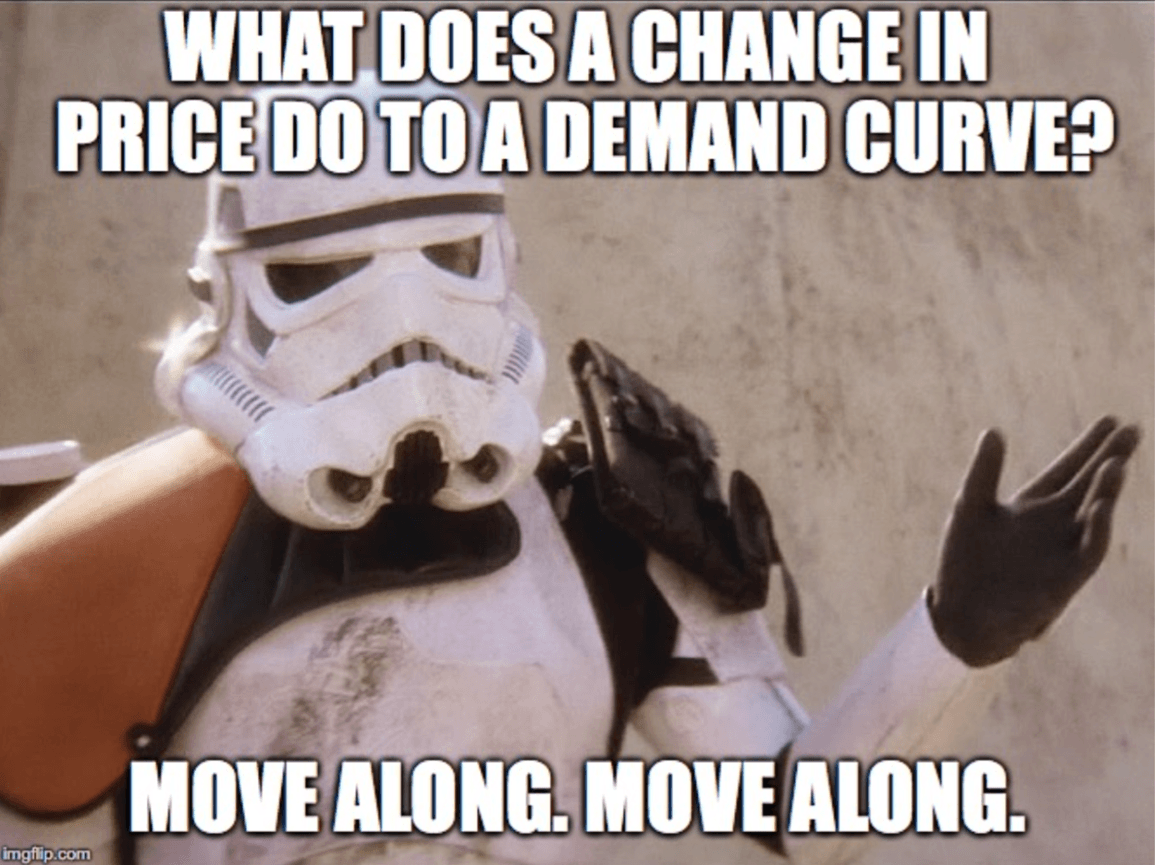Economics is the study of this.
scarcity / human choices
Countries do this to gain an advantage in trade.
Specialize.
The law of demand state that there is this relationship between price and quantity demanded.
Inverse
The law of supply states that there is this relationship between price and quantity supplied.
direct or positive
These are the four factors of production.
Land, Labor, Capital, Entrepreneurship
A traded commodity is always expressed in terms of this.
Another commodity.
ceteris paribus means this.
all other factors held constant
If the government decreases taxes on toys, the supply curve will do this.
Shift to the right
A point on the PPC curves means this.
The economy is using resources efficently.

D.
If consumers buy more of good B when the price of good A rises, the two goods are this.
Substitutes
If people prefer mountain dew over mellow yellow, the supply curve of mellow yellow will do this.
Not shift
A straight PPC means that the two goods are this.
easily interchangeable / adaptable.
When both countries are profitable in trade, it is called this.
Mutually beneficial trade
These are all 5 shifters of demand.
Tastes and Preferences
Number of Consumers
Price of Related Goods
Income
Future Expectations
These are all 5 shifters of supply.
Prices/Availability of inputs (resources)
Number of Sellers
Technology
Government Action: Taxes & Subsidies
Expectations of Future profit
The term economists use to describe the declining value of capital goods is called this.
Depreciation
If Rayland can produce 1,200 hats or 300 bikes and Artland can produce 600 hates or 300 bikes, which country has the comparative advantage in producing bikes?
Artland
A change in quantity demanded does this to the demand curve.

Elasticity